Books
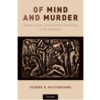
Of Mind and Murder: Toward a More Comprehensive Psychology of the Holocaust
By George R. Mastroianni. How could the Holocaust have happened? How can people do such things to other people? Questions such as these have animated discussion of the Holocaust from our earliest awareness of what had happened. These questions have engaged the lay public as well as academics from many different fields. Psychologists have taken an…
Read more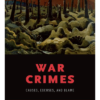
War Crimes: Causes, Excuses, and Blame
By Matthew Talbert and Jessica Wolfendale. In 2005, US Marines killed 24 unarmed Iraqi civilians in the town of Haditha, including several children. How should we assess the perpetrators of this and other war crimes? Is it unfair to blame the Marines because they were subject to situational pressures such as combat stress (and had lost one of…
Read more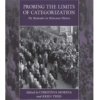
Probing the Limits of Categorization: The Bystander in Holocaust History
Edited by Christina Morina and Krijn Thijs. Of the three categories that Raul Hilberg developed in his analysis of the Holocaust—perpetrators, victims, and bystanders—it is the last that is the broadest and most difficult to pinpoint. Described by Hilberg as those who were “once a part of this history,” bystanders present unique challenges for those…
Read more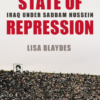
State of Repression: Iraq under Saddam Hussein
By Lisa Blaydes. A new account of modern Iraqi politics that overturns the conventional wisdom about its sectarian divisions. How did Iraq become one of the most repressive dictatorships of the late twentieth century? The conventional wisdom about Iraq’s modern political history is that the country was doomed by its diverse social fabric. But in State…
Read more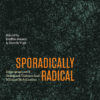
Sporadically Radical: Ethnographies of Organized Violence and Militant Mobilization
Edited by Henrik Vigh and Steffen Jensen. What makes young men willing to risk their lives by enrolling in violent organizations? How do these organizations persuade young men to do so? In the age of radicalization, these questions are central to most debates about politics and globalization. Through long-term ethnographic fieldwork in various conflict settings,…
Read more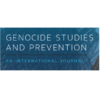
GSP: Images And Collective Violence: Function, Use And Memory
A new issue of Genocide Studies and Prevention is out, with contributions of network members. Genocide Studies and Prevention: An International Journal (GSP) is the official journal of The International Association of Genocide Scholars (IAGS). IAGS is a global, interdisciplinary, non-partisan organization that seeks to further research and teaching about the nature, causes, and consequences of genocide,…
Read more
Reckonings: Legacies of Nazi Persecution and the Quest for Justice
By Mary Fulbrook. A single word—”Auschwitz”—is sometimes used to encapsulate the totality of persecution and suffering involved in what we call the Holocaust. Yet focusing on a single concentration camp, however horrific the scale of crimes committed there, leaves an incomplete story, truncates a complex history and obscures the continuing legacies of Nazi crimes. Mary…
Read more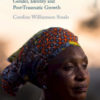
Rwanda After Genocide: Gender, Identity and Post-Traumatic Growth
By Caroline Williamson Sinalo. In the 1994 Rwanda genocide, around 1 million people were brutally murdered in just thirteen weeks. This book offers an in-depth study of posttraumatic growth in the testimonies of the men and women who survived, highlighting the ways in which they were able to build a new, and often enhanced, way…
Read more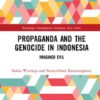
Propaganda and the Genocide in Indonesia: Imagined Evil
By Saskia E. Wieringa and Nursyahbani Katjasungkana. In Indonesia, the events of 1st October 1965 were followed by a campaign to annihilate the Communist Party and its alleged sympathisers. It resulted in the murder of an estimate of one million people – a genocide that counts as one of the largest mass murders after WWII – and…
Read more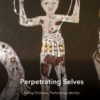
Perpetrating Selves: Doing Violence, Performing Identity
By Clare Bielby and Jeffrey Stevenson Murer. This volume explores violent perpetration in diverse forms from an interdisciplinary and transnational perspective. From National Socialist perpetration in the museum, through post-terrorist life writing to embodied performances of perpetration in cosplay, the collection draws upon a series of historical and geographical case studies, seen through the lens…
Read more
